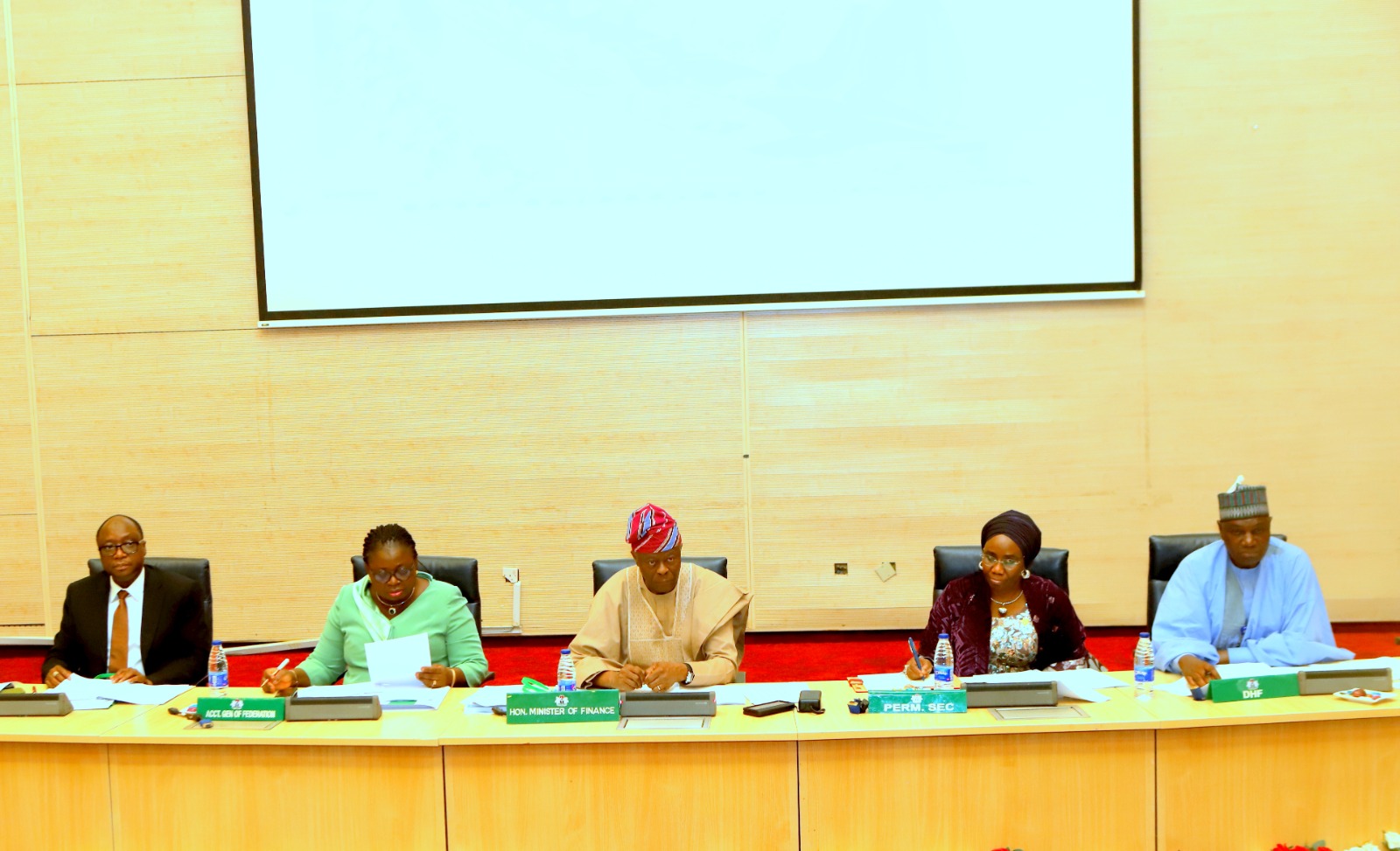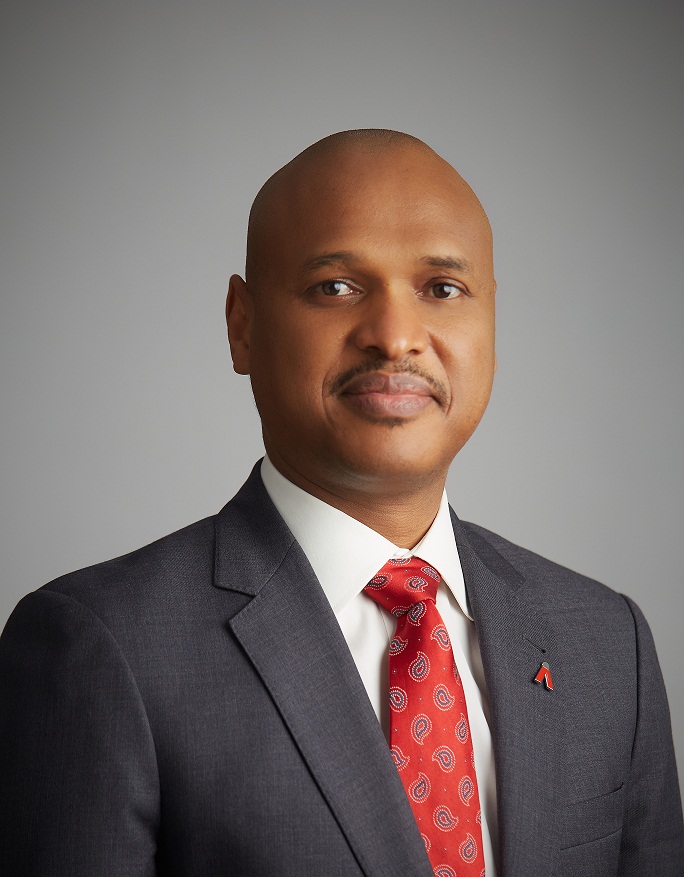Business
FAAC: FG states LGCs Share N1,354.371 Trillion From Gross Total of N2,483.890 Trillion For Month of June 2024

Joel Ajayi
The Federation Account Allocation Committee (FAAC), at its July 2024 meeting chaired by the Minister of Finance and Coordinating Minister of the Economy, Wale Edun, shared a total sum of N1,354.371 Trillion to the three tiers of government as Federation Allocation for the month of June, 2024 from a gross total of N2,483.890 Trillion.
From the stated amount inclusive of Gross Statutory Revenue, Value Added Tax (VAT), Electronic Money Transfer Levy (EMTL), Exchange Difference (ED), and an Augmentation of N200 Billion, the Federal Government received N459.776 Billion, the States received N461.979 Billion, the Local Government Councils got N337.019 Billion, while the Oil Producing States received N95.598 Billion as Derivation, (13% of Mineral Revenue).
The sum of N92.112 Billion was given for the cost of collection, while N1037.407 Billion was allocated for Transfers Intervention and Refunds.
The Communique issued by the Federation Account Allocation Committee (FAAC) at the end of the meeting indicated that the Gross Revenue available from the Value Added Tax (VAT) for the month of June 2024, was N562.685 Billion as against N497.665 Billion distributed in the preceding month, resulting in an increase of N65.020 Billion.
From that amount, the sum of N22.507 Billion was allocated for the cost of collection and the sum of N16.205 Billion given for Transfers, Intervention and Refunds. The remaining sum of N523.973 Billion was distributed to the three tiers of government, of which the Federal Government got N78.596 Billion, the States received N261.987 Billion and Local Government Councils got N183.391 Billion.
Accordingly, the Gross Statutory Revenue of N1,232.667 Trillion received for the month. From the stated amount, the sum of N68.951 Billion was allocated for the cost of collection and a total sum of N1,021.202 Trillion for Transfers, Intervention and Refunds.
The remaining balance of N142.514 Billion was distributed as follows to the three tiers of government: Federal Government got the sum of N48.952 Billion, States received N24.829 Billion, the sum of N19.142 Billion was allocated to LGCs and N49.591 Billion was given to Derivation Revenue (13% Mineral producing States).
Also, the sum of N16.346 Billion from Electronic Money Transfer Levy (EMTL) was distributed to the three (3) tiers of government as follows: the Federal Government received N2.354 Billion, States got N7.846 Billion, Local Government Councils received N5.492 Billion, while N0.654 Billion was allocated for Cost of Collection.
The Communique also disclosed the sum of N472.192 Billion from Exchange Difference, which was shared as follows: Federal Government received N224.514 Billion, States got N113.877 Billion, the sum of N87.794 Billion was allocated to Local Government Councils, N46.007 Billion was given for Derivation (13% of Mineral Revenue).
It further disclosed an Augmentation of N200 Billion which was shared as follows: Federal Government got N105.360 Billion, the States received the sum of N53.440 Billion, while the sum of N41.200 Billion was allocated to Local Government Councils.
Companies Income Tax (CIT) and Value Added Tax (VAT) increased significantly, while Import and Excise Duties and Electronic Money Transfer Levy (EMTL) increased marginally. Petroleum Profit Tax (PPT), Royalty Crude, Rentals and Customs External Tarrif levies (CET) recorded considerably decreases.
According to the Communique, the total revenue distributable for the current month of June 2024, was drawn from Statutory Revenue of N142.514 Billion, Value Added Tax (VAT) of N523.973 Billion, N15.692 Billion from Electronic Money Transfer Levy (EMTL), N472.192 Billion from Exchange Difference and Augmentation of N200 Billion, bringing the total distributable amount for the month to N1,354.371 Trillion.
The balance in the Excess Crude Account (ECA) as at July 2024 stands at $473,754.57.
Business
TAJBank Emerges Nigeria’s Biggest Non-Interest Bank

Cyril Ogar
After five years of operations in Nigeria’s rapidly evolving non-interest banking (NIB) space, TAJBank Limited has become the biggest player in the NIB subsector based on its total assets and gross earnings values.
Disclosing this during his paper presentation on the key performance indices in the non-interest banking space over the past few years at a seminar organized by Leaders Corporate Services with the theme “Roles of Non-Interest Banks In SMEs’ Financing” for SME entrepreneurs yesterday in Abuja, an investment expert, Mr. Olabode Akeredolu-Ale, maintained that based on the non-interest banks’ approved financial statements for the half year 2025, TAJBank currently remained the biggest in terms of its total assets.
The expert, a chartered stockbroker, specifically confirmed that his recent investment researches on the NIBs and their financial performances showed that TAJBank, with its total assets rising to N1.017 trillion in half year 2025 up from N953.098 billion as of December 2024, which is about N53 billion higher than the nearest NIB’s assets, now ranked top in the banking subsector.
According to him, TAJBank’s gross earnings for H1 2025 also surged to N53.752 billion from N32.86 billion as of December 2024, representing a 64% growth, and higher than the nearest NIB’s gross earnings in the period under review.
This is even as he disclosed that on the NIBs’ earnings per share during the half year, TAJBank reported N61.36 kobo earnings per share, about 92% higher than the earnings per share of the next NIB during the period.
Akeredolu-Ale, who is also a chartered accountant, clarified: “The figures I am reeling out here on the NIBs are sourced from the banking and capital market regulatory institutions’ platforms, which anyone can access to verify.
“I am part of this event because of my research interest in non-interest banking and how the players in the subsector in Nigeria can help to leverage their competencies in innovation and ethical banking to support our MSMEs.
“Today, the MSMEs cannot access DMBs’ loans due to high lending rates and other inclement macroeconomic factors. This is where I think the NIBs have become very crucial to Nigeria’s economic growth.
“Overall, my findings on the NIBs indicated that they are all trying their best with non-interest loans to support entrepreneurs, particularly the MSMEs owners. I have advised those of them at this seminar to explore the cost-friendly financing options of the NIBs to grow their businesses by opening accounts with the NIBs”, the expert added.
Another speaker at the event, Benjamin Chukwudi, also commended the NIBs for their “catalytic roles in helping SMEs to access interest-free loans and providing them the needed financial management advisory, which have been helping them in sustaining their operations in the face of rising cost of doing business in the country.”
-

 Featured6 years ago
Featured6 years agoLampard Names New Chelsea Manager
-

 Featured6 years ago
Featured6 years agoFG To Extends Lockdown In FCT, Lagos Ogun states For 7days
-

 Featured6 years ago
Featured6 years agoChildren Custody: Court Adjourns Mike Ezuruonye, Wife’s Case To April 7
-

 Featured6 years ago
Featured6 years agoNYSC Dismisses Report Of DG’s Plan To Islamize Benue Orientation Camp
-

 Featured4 years ago
Featured4 years agoTransfer Saga: How Mikel Obi Refused to compensate me After I Linked Him Worth $4m Deal In Kuwait SC – Okafor
-
Sports3 years ago
TINUBU LAMBAST DELE MOMODU
-

 News10 months ago
News10 months agoZulu to Super Eagles B team, President Tinubu is happy with you
-
Featured6 years ago
Board urges FG to establish one-stop rehabilitation centres in 6 geopolitical zones
